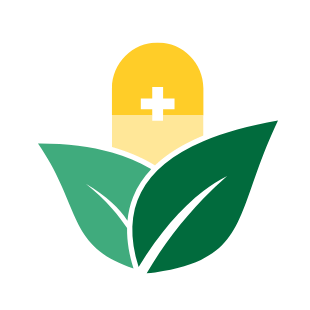Yes, things like adjusting your nutrition, getting more active and having positive thoughts, can halt the progression of prostate cancer and in some cases even help regression, as many scientific studies show.
Does that sound too simple to be true? Let’s have a closer look!
Nutrition
Your diet is ideallyprimarily plant-based. A plant-based diet is naturally high in fiber.
Numerous scientific studies indicate that fibers may reduce cancer risk and reduce the risk of prostate cancer progression. Fibers are believed to bind to toxic compounds and carcinogens, which are then later eliminated from the body. On top, a high-fiber diet works to reduce hormone levels that may be involved in the progression of prostate cancer.
In a nutshell: eat lots of fruits and vegetables, especially cruciferous veggies and tomatoes. Avoid unhealthy fats, red meat and dairy products, hydrogenated fats (in processed and fried foods) and seed oils. Have fish and oils as olive oil instead. Choose for soy, legumes, beans, fish, skinless poultry and nuts as your protein intake.
Exercise
Research undeniably shows a reduced risk of lethal prostate cancer. Exercise as much as you can. Preferably vigorous activities such as jogging or cycling so you can get a good sweat on (vigorous aerobic exercise). But going for a sturdy walk for at least 30mins a day shows many benefits as well. A study among prostate cancer survivors showed that men who performed 3 or more hours per week of vigorous activity had a 61% lower risk of dying from prostate cancer compared to men who reported less than 1 hour of activity per week.
Exercise improves cardio-respiratory (heart-lung) function, muscle strength, fat and muscle mass, fatigue, anxiety, depression, and overall quality of life among prostate cancer survivors, particularly among men on hormonal therapy.
Overall, you want to maintain a healthy weight, through regular exercise and healthy nutrition. Overweight or obese men have a higher risk of developing lethal prostate cancer, and increasing evidence suggests that obesity is associated with prostate cancer recurrence, progression and mortality. This association may be due to biological mechanisms that involve insulin, altered levels of male hormones (androgens), and cellular activity in fat tissue.
Quit smoking
You already know that smoking is not good for you. Not only will quitting reduce the risk of dying from prostate cancer but it reduces the risk to die from any cause. Good news is that the benefits start the day after you quit smoking so it is definitely worth the effort.
Sexual activity
A recent study performed in a group of more than 32.000 men found that ejaculating more than 20 times per month reduced prostate cancer risk by about 20% compared to ejaculating only four to seven times per month. Researchers are still not clear on the reasons but speculate that frequent ejaculation may help flush out retained chemical carcinogens in the prostate glands.
What is sure is that frequent ejaculation, be it from sexual intercourse, masturbation or during a dream, definitely does not do harm. What’s more, release of psychological tension that accompanies ejaculation as well as the beneficial psychosocial effects of sex and masturbation within healthy relationships, may lower nervous activity associated with stress and slow the growth of potentially cancerous cells in the prostate.
Positive thinking
Anxiety, stress, feeling mentally unstable etc., it is clear that they can affect your body’s physiological health as well. Specific hormones made while under stress make it easier for a tumor to grow and cancer to spread. On top, psychological stress interferes with the way certain cells in your immune system work. In particular, it can affect cells that find and kill emerging cancer.
So, what can you do to find and maintain a healthy mindful and mental state?
Well, we’ve already covered healthy nutrition and regular exercise. But do you know that mindful practices as yoga, meditation and breathwork, have proven beneficial effects on anxiety and stress? A regular sleep pattern which gives you at least 6 hours of sleep per night does wonders as well. Finally, talking about what is bothering you and looking for social support is key as well.
REFERENCES
Matsushita M, Fujita K, Nonomura N. Influence of Diet and Nutrition on Prostate Cancer. Int J Mol Sci. 2020 Feb 20;21(4):1447.
Ballon-Landa E, Parsons JK. Nutrition, physical activity, and lifestyle factors in prostate cancer prevention. Curr Opin Urol. 2018 Jan;28(1):55-61.
Patel VH. Nutrition and prostate cancer: an overview. Expert Rev Anticancer Ther. 2014 Nov;14(11):1295-304.
Applegate CC, Rowles JL, Ranard KM, Jeon S, Erdman JW. Soy Consumption and the Risk of Prostate Cancer: An Updated Systematic Review and Meta-Analysis. Nutrients. 2018 Jan 4;10(1):40.
Wilson KM, Mucci LA. Diet and Lifestyle in Prostate Cancer. Adv Exp Med Biol. 2019;1210:1-27.
Zuniga KB, Chan JM, Ryan CJ, Kenfield SA. Diet and lifestyle considerations for patients with prostate cancer. Urol Oncol. 2020 Mar;38(3):105-117.
Peisch SF, Van Blarigan EL, Chan JM, Stampfer MJ, Kenfield SA. Prostate cancer progression and mortality: a review of diet and lifestyle factors. World J Urol. 2017 Jun;35(6):867-874.
Ornish D, Weidner G, Fair WR, Marlin R, Pettengill EB, Raisin CJ, Dunn-Emke S, Crutchfield L, Jacobs FN, Barnard RJ, Aronson WJ, McCormac P, McKnight DJ, Fein JD, Dnistrian AM, Weinstein J, Ngo TH, Mendell NR, Carroll PR. Intensive lifestyle changes may affect the progression of prostate cancer. J Urol. 2005 Sep;174(3):1065-9; discussion 1069-70.
Michael Leitzmann, MD, investigator, National Cancer Institute. Leitzmann, M. The Journal of the American Medical Association, April 7, 2004; vol 291: pp 1578-1586. Martin Resnick, MD, chairman and professor, department of urology, Case Western Reserve University, Cleveland. American Cancer Society.
Rider JR, Wilson KM, Sinnott JA, Kelly RS, Mucci LA, Giovannucci EL. Ejaculation Frequency and Risk of Prostate Cancer: Updated Results with an Additional Decade of Follow-up. Eur Urol. 2016 Dec;70(6):974-982.
Kotwal AA, Schumm P, Mohile SG, Dale W. The influence of stress, depression, and anxiety on PSA screening rates in a nationally representative sample. Med Care. 2012;50(12):1037-1044.

